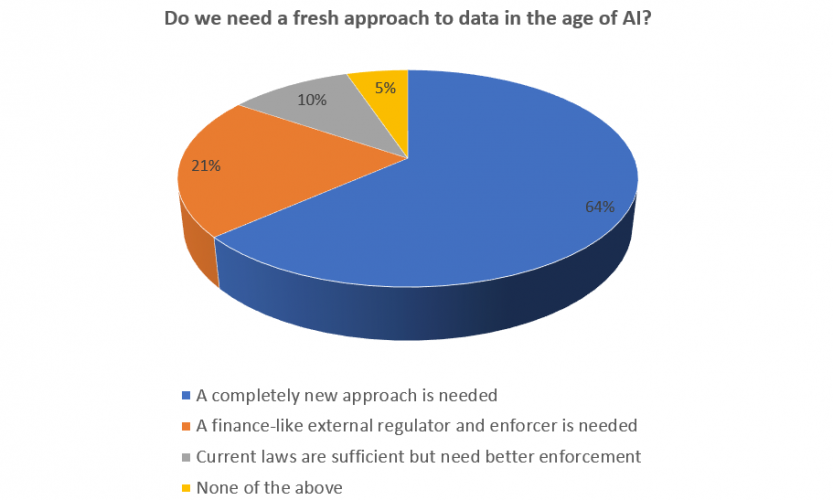
Currently, AI is best described as the ability of machines to store, manipulate and analyse very large datasets, but even under this definition there are many complexities surrounding its use. Increasingly, there are concerns that regulation is in danger of falling behind the capabilities of the technology, leading to both intentional and accidental misuse.
_______________________________________________________
Further reading
- Artificial Intelligence could add around £630bn to UK economy
- Engineers sign pledge to halt weaponisation of artificial intelligence
- Investment in artificial intelligence aims to boost diagnosis of heart disease
___________________________________________________________________________________
In last week’s poll, we asked our readers about the best course of action in the face of this powerful new tool. Almost two-thirds (64 per cent) of repsondents felt an entirely new approach to data was required. Around one in five felt that an external regulator- similar to the financial industry - was needed. Just 10 per cent of readers felt that current laws were sufficient, while five per cent chose for the 'none of the above' option.
"I am dubious about government’s ability even to understand the issues," commented reader Trevor, "let alone devise effective regulatory counter-measures against this constantly evolving technology."
John Hartley wrote: "Some companies have got round GDPR by making their website opt out so confusing & so buried, that most people just click 'accept all'. I would make it compulsory for a simple choice."
"A new approach is needed," said AnotherSteve. "Most of the big boys in AI tend to be overseas based, eg. Google, Microsoft, Facebook. So, local laws and regulation are going to be powerless and we will need a new way to protect our private data."
As ever, the poll is intended as a springboard for debate, and we welcome your comments. Please familiarise yourselves with our guidelines for the contents of comments before submitting, and bearing in mind that all comments are moderated for length and clarity and to ensure that debate does not get sidetracked.





Nanogenerator consumes CO2 to generate electricity
Whoopee, they've solved how to keep a light on but not a lot else.